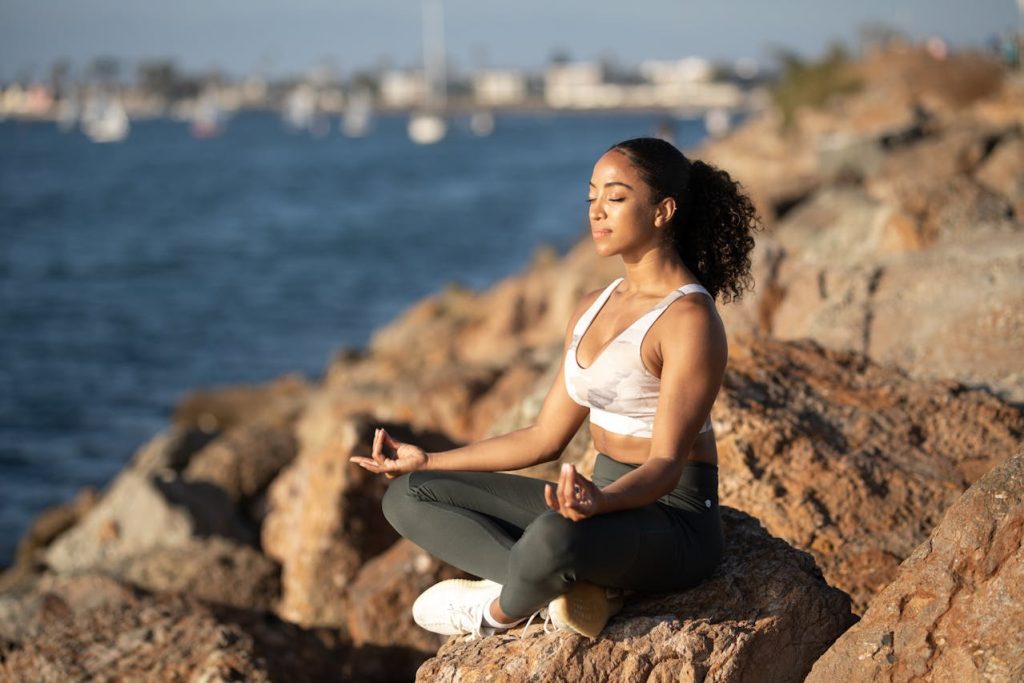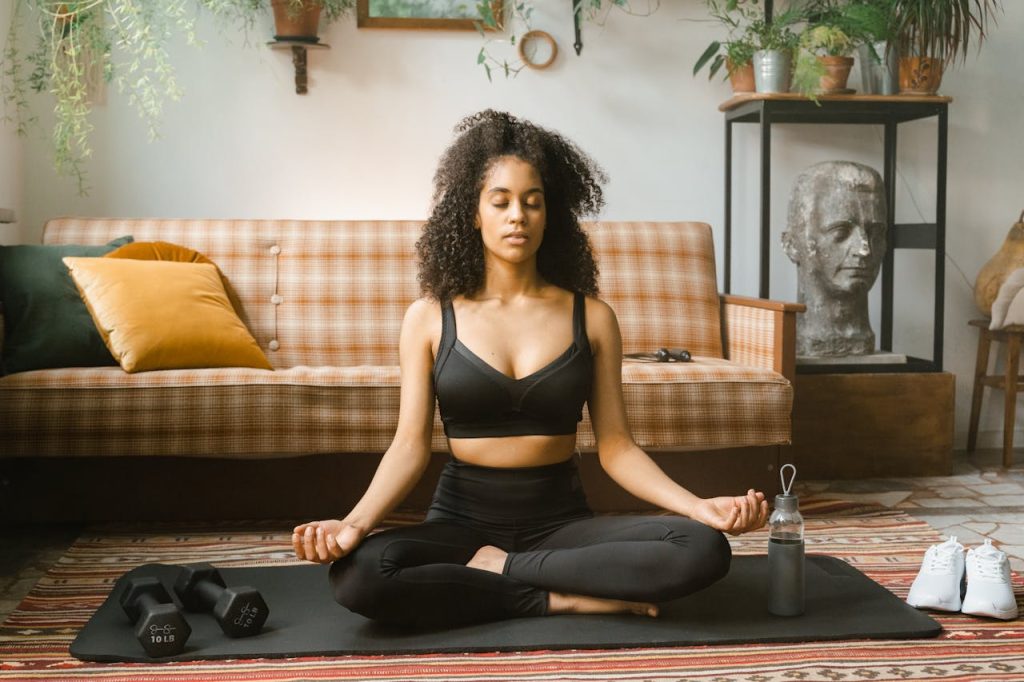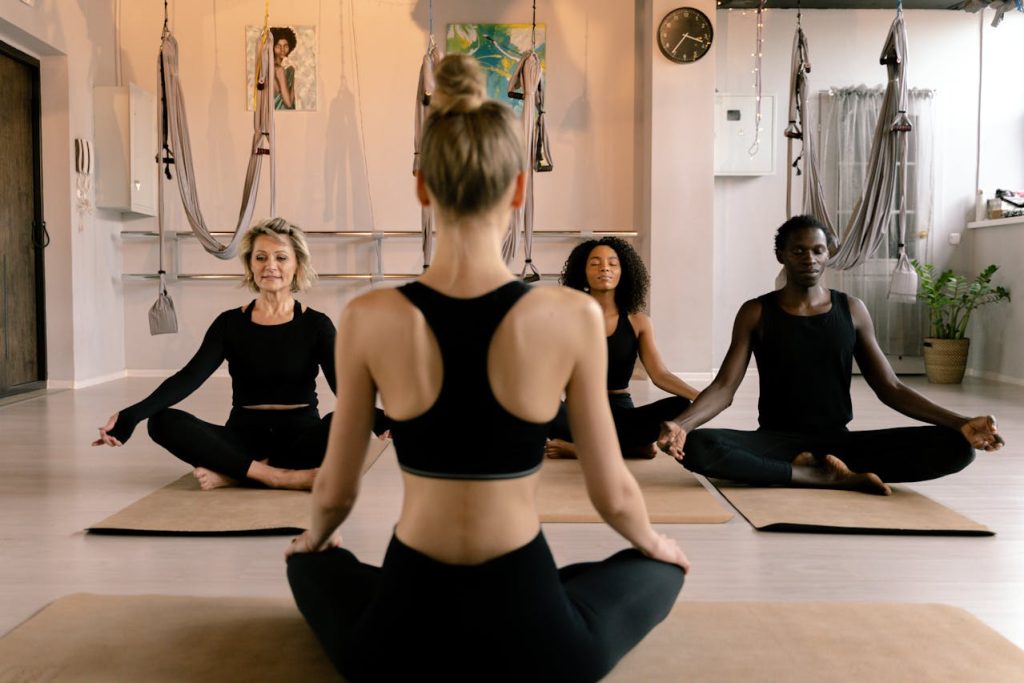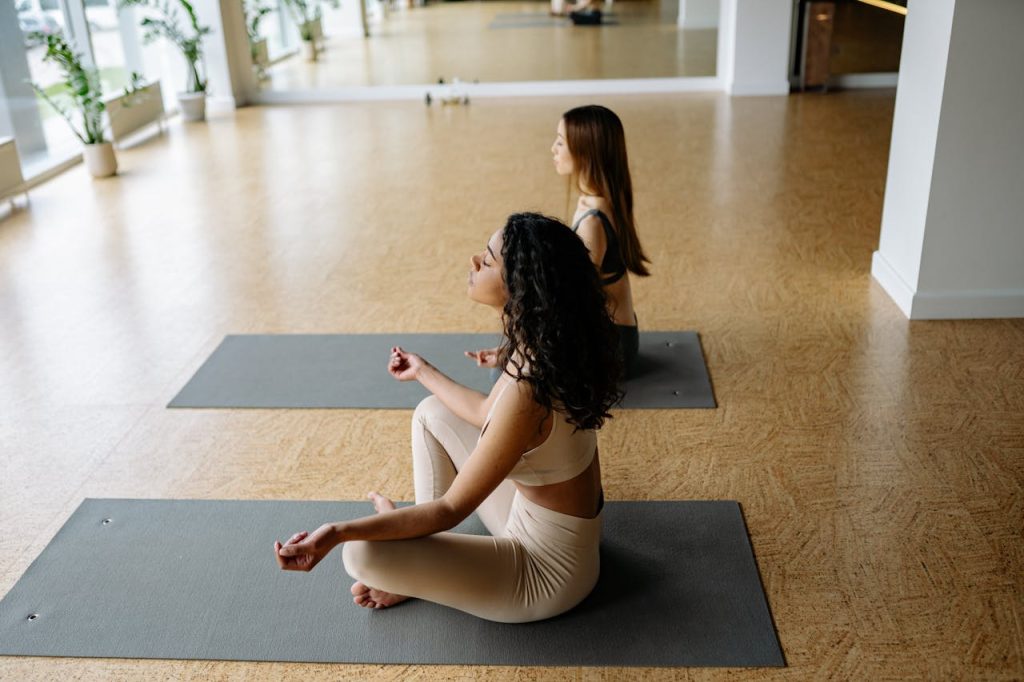Discover how mindfulness meditation for anxiety can help you find calm, reduce stress, and improve emotional well-being. Learn practical techniques and why Mindfulness Meditation Hub is your go-to resource for guided meditation support.
Overview: What You’ll Learn
In this blog post, you’ll discover how mindfulness meditation for anxiety can transform your mental and emotional health. You’ll learn:
- How mindfulness meditation works to calm anxious thoughts.
- Practical meditation techniques for beginners and experienced practitioners.
- The science behind mindfulness and anxiety relief.
- How to build a consistent meditation routine that fits your lifestyle.
- Why Mindfulness Meditation Hub offers the best resources to support your mindfulness journey.
Whether you struggle with everyday stress or chronic anxiety, this guide will show you how to reconnect with the present moment and regain inner peace.
Understanding Anxiety and the Power of Mindfulness
Anxiety is one of the most common mental health challenges today. It can manifest as constant worry, racing thoughts, tension, or a sense of dread about the future. While therapy and medication can help, many people are turning to mindfulness meditation for anxiety as a natural, long-term solution to calm the mind and body.
Mindfulness meditation involves focusing your attention on the present moment—your breath, sensations, or thoughts—without judgment. Instead of fighting anxiety, mindfulness teaches you to observe it calmly and let it pass, reducing the intensity of anxious episodes over time.

How Mindfulness Meditation for Anxiety Works
When you practice mindfulness meditation for anxiety, you activate the parasympathetic nervous system—the body’s natural “rest and digest” response. This lowers your heart rate, relaxes your muscles, and helps shift your focus away from fearful thoughts.
Here’s how it helps:
- Reduces stress hormones: Mindfulness lowers cortisol levels, helping your body relax.
- Improves focus and clarity: By anchoring attention in the present, your mind stops overthinking the past or future.
- Strengthens emotional regulation: You become less reactive and more in control of how you respond to stress.
- Promotes self-awareness: You learn to notice triggers and anxious patterns before they escalate.
Scientific studies show that consistent mindfulness meditation for anxiety can significantly reduce symptoms of generalized anxiety disorder, panic attacks, and social anxiety.
Effective Mindfulness Meditation Techniques for Anxiety Relief
At Mindfulness Meditation Hub, we guide individuals through techniques that help reduce anxiety naturally and effectively. Here are a few simple yet powerful practices:
1. Deep Breathing Meditation
Focus on your breath as it moves in and out. Each time your mind wanders to anxious thoughts, gently bring your attention back to your breath. This helps slow your heart rate and calm your nervous system.
2. Body Scan Meditation
Lie down or sit comfortably, then bring awareness to each part of your body from head to toe. This exercise releases tension and reconnects you with your physical self.
3. Loving-Kindness Meditation
Repeat phrases such as, “May I be safe. May I be calm. May I be free from anxiety?” This practice cultivates compassion toward yourself and others, replacing fear with kindness.
4. Guided Meditation Sessions
If you’re new to mindfulness, guided sessions are an excellent place to start. At Mindfulness Meditation Hub, we offer guided meditations that help ease anxiety and promote peace of mind through soothing voice guidance and background music.

The Science Behind Mindfulness Meditation for Anxiety
Modern neuroscience confirms what ancient traditions have long understood—mindfulness reshapes the brain. Studies using MRI scans show that regular mindfulness meditation for anxiety can:
- Shrink the amygdala, the part of the brain responsible for fear and stress responses.
- Strengthen the prefrontal cortex, improving decision-making and emotional control.
- Enhance connections in brain networks related to attention and relaxation.
When practiced consistently, mindfulness not only relieves anxiety but also builds resilience against future stress.
How to Create a Mindfulness Routine That Lasts
Consistency is the key to success with mindfulness meditation for anxiety. Here’s how to make it part of your everyday life:
- Start small: Begin with just 5–10 minutes a day.
- Create a peaceful space: Choose a quiet spot free from distractions.
- Set realistic goals: Focus on progress, not perfection.
- Use guided meditations: They keep your focus on track.
- Be patient: Mindfulness is a journey, not a quick fix.
Over time, your practice will deepen, and you’ll notice more calm, focus, and balance in your life.
Benefits of Mindfulness Meditation for Anxiety
Practicing mindfulness meditation for anxiety consistently brings a wide range of physical and emotional benefits, including:
- Lower stress and cortisol levels.
- Better sleep and relaxation.
- Enhanced focus and creativity.
- Increased emotional resilience.
- Improved relationships and communication.
- A deeper sense of peace and acceptance.
By learning to observe rather than react to anxious thoughts, you gain mastery over your mind—not the other way around.

Why Choose Mindfulness Meditation Hub?
At Mindfulness Meditation Hub, we specialize in helping people manage stress, anxiety, and emotional imbalance through personalized mindfulness programs. Our platform offers:
- Guided meditation sessions for beginners and advanced practitioners.
- Breathing and relaxation techniques tailored to your needs.
- Resources and articles to support your ongoing mindfulness journey.
- Expert-led workshops that deepen your understanding of mindfulness.
We believe that mindfulness meditation for anxiety should be accessible to everyone, regardless of experience level. Whether you prefer audio meditations, written guides, or interactive workshops, we provide everything you need to live a calmer, more centered life.
Tips for Maximizing Your Meditation Experience
- Meditate at the same time each day to build consistency.
- Pair meditation with gentle activities like yoga or journaling.
- Avoid multitasking—focus on one practice at a time.
- Use calming music or nature sounds if silence feels uncomfortable.
- Reflect after each session to track progress and insights.
Final Thought
Anxiety doesn’t have to control your life. With consistent mindfulness meditation for anxiety, you can retrain your mind to stay present, peaceful, and balanced—even in stressful situations.
At Mindfulness Meditation Hub, we’re here to support your journey toward emotional freedom. Explore our guided sessions, resources, and online meditation programs to begin your path to inner peace today.

